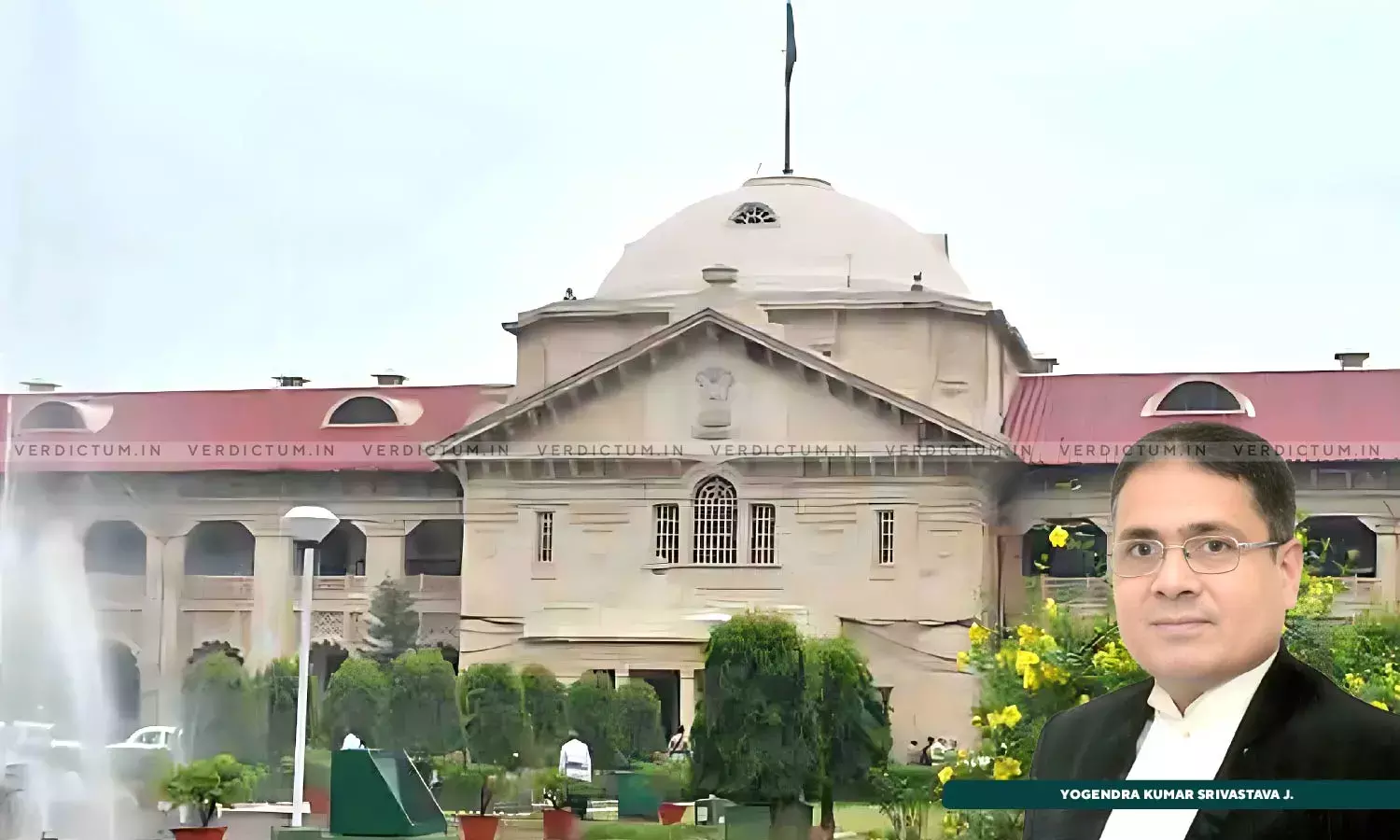Habeas Corpus Writ Won’t Ordinarily Be Issued For Grant Of Visitation Rights Where Proceedings Are Pending Before Family Court: Allahabad HC

The Allahabad High Court held that the writ of habeas corpus will not be ordinarily issued for grant of visitation rights where proceedings between the husband and wife are pending before the Family Court.
The Court held thus in a habeas corpus writ petition filed by a husband seeking visitation rights.
A Single Bench of Justice Yogendra Kumar Srivastava observed, “A writ of habeas corpus, as has been consistently held, though a writ of right is not to be issued as a matter of course, particularly when the writ is sought against a parent for the custody of a child. … Habeas Corpus writ would not ordinarily issue for grant of visitation rights particularly where proceedings between the parties are pending before the Family Court.”
The Bench said that in matters of custody, the welfare of child would be of a paramount consideration and the role of the court in examining the cases of custody of a minor is on the touchstone of ‘principle of parens patriae jurisdiction’.
Advocate Sandeep Srivastava appeared for the petitioners while AGA Pankaj Srivastava appeared for the respondents.
In this case, the respondent wife of the petitioner husband, left her matrimonial home in 2018 along with an infant of age about one month at that point of time. Proceedings under Sections 9 and 13 of the Hindu Marriage Act, 1955 (HMA), maintenance proceedings under Section 125 of the Code of Criminal Procedure, 1973 (CrPC), and also a criminal case were pending between the parties.
The counsel for the petitioners submitted that the only relief that he sought to press in the petition was for grant of visitation rights. Whereas, the counsel for the respondents submitted that since the relief sought in the petition was confined to grant of visitation rights and proceedings relating to matrimonial disputes between the parties were pending before the Family Court, the petition seeking a writ of habeas corpus would not be entertainable.
The High Court in view of the above submissions by the counsel for parties noted, “It is therefore seen that in an application seeking a writ of habeas corpus for custody of a minor child, as is the case herein, the principal consideration for the court would be to ascertain whether the custody of the child can be said to be unlawful and illegal and whether the welfare of the child requires that the present custody should be changed and the child should be handed over in the care and custody of somebody else other than in whose custody the child presently is.”
The Court said that the proceedings in the nature of habeas corpus may not be used to examine the question of the custody of a child and that the prerogative writ of habeas corpus, is in the nature of extraordinary remedy, and the writ is issued, where in the circumstances of a particular case, the ordinary remedy provided under law is either not available or is ineffective.
“The power of the High Court, in granting a writ, in child custody matters, would be qualified only in cases where the detention of a minor is by a person who is not entitled to his/her legal custody. … In a case where facts are disputed and a detailed inquiry is required, the court may decline to exercise its extraordinary jurisdiction and may direct the parties to approach the appropriate court”, it added.
Furthermore, the Court observed that the relief sought in the writ petition is restricted to a claim for visitation rights and hence, it is always open to the party concerned to avail the remedy by moving an appropriate application before the Family Court where proceedings regarding the matrimonial disputes between the parties are stated to be pending.
“Having regard to the aforesaid, this Court is not inclined to exercise its extraordinary prerogative jurisdiction for issuance of a writ of habeas corpus, in the facts of the case”, it concluded.
Accordingly, the High Court dismissed the writ petition.
Cause Title- Mithilesh Maurya And Another v. State of UP And 5 Others (Neutral Citation: 2024:AHC:66116)
Appearance:
Petitioners: Advocates Sandeep Srivastava and Hemlata Srivastava.
Respondents: AGA Pankaj Srivastava and Advocate Saurabh Kumar Pandey.


